Robert F. Kennedy Jr. returned to the Senate Finance Committee on Thursday for the first time since the panel advanced his nomination to lead the Department of Health and Human Services (HHS) six months ago. What ensued was more shouting match than conversation as Democratic senators and a handful of Republicans confronted the secretary on a series of dramatic actions taken in recent weeks targeting vaccines, including the mass firing of a key vaccine advisory committee and the ouster of the administration’s own Centers for Disease Control and Prevention (CDC) director after just a month on the job.
Kennedy grew angry and combative when pressed on his moves, lashing out at senators and claiming they were “wrong,” “making stuff up,” or just “lying.” Committee members registered their own anger and frustration with how Kennedy’s tenure at HHS has contradicted promises he made to lawmakers as a nominee. Democratic Sen. Maria Cantwell told Kennedy, “Sir, you’re a charlatan.”
In January, Kennedy had appeared before the Senate Finance Committee as President Donald Trump’s nominee to lead the Department of Health and Human Services. Kennedy was more reserved and deferential during his confirmation process, but he didn’t inspire much confidence that he’d turned over a new leaf on vaccines. He made a handful of pledges not to reduce vaccine access or undermine public health agencies’ long-standing vaccine recommendations, but he also evaded questions about vaccine safety and reiterated his vaccine skepticism.
It was clear from the outset of the January hearing that Kennedy was not being forthright with lawmakers. In his opening remarks, he invoked his children to claim that he had never been anti-vaccine, saying, “I believe that vaccines play a critical role in health care, all of my kids are vaccinated.” But in June 2020, he said, “What would I do if I could go back in time, and I could avoid giving my children the vaccines that I gave them? I would do anything for that, I would pay anything to be able to do that.”
On Thursday, lawmakers again presented Kennedy with his conflicting statements about vaccines. “When were you lying, sir—when you told this committee that you were not anti-vax or when you told Americans that there’s no safe and effective vaccine?” Democratic Sen. Tina Smith asked.
“Both things are true,” Kennedy replied.
Observers no longer need to square Kennedy’s years of anti-vaccine pronouncements and advocacy with claims made while being confirmed. After more than six months of Kennedy’s leadership at HHS, it’s become painfully clear he’s governing as an anti-vaxxer.
The actions HHS has taken at Kennedy’s direction tell the story. Kennedy’s response to the measles outbreak in Texas showcased his enduring vaccine skepticism. He initially downplayed the outbreak, saying in February, “it’s not unusual,” despite the fact that the viral spread had already resulted in the first reported death from measles in a decade. He later said during a visit to Texas that autism and chronic disease deserve more attention than measles. In a handful of comments, Kennedy affirmed that the measles vaccine protected children from the virus but simultaneously claimed that vaccines have not been safety tested. He far more vocally promoted alternative remedies for measles like cod liver and vitamin A supplements, saying in a Fox News interview that doctors using such remedies in measles cases have seen “almost miraculous and instantaneous recovery.”
There are no therapeutic treatments approved by the Federal Drug Administration (FDA) specifically for measles. Vitamin A is used by some doctors to help manage severe measles cases, particularly in developing countries where vitamin A deficiency is more common, but it does not prevent infection. Kennedy directed the CDC to look into alternative medicines. The secretary’s comments apparently contributed to a run on cod liver and vitamin A in stores near the heart of the outbreak. Doctors in Texas subsequently reported cases where patients had taken unsafe amounts of vitamin A for weeks before they were sickened with measles. A children’s hospital in Lubbock, Texas, received multiple pediatric patients suffering from vitamin A toxicity, which can result in liver damage.
The Texas health department announced the end of the outbreak last month, and in an op-ed published Tuesday, Kennedy claimed credit for the CDC’s response, saying it was neither “pro-vax” nor “antivax.”
In May, he unilaterally revoked the CDC’s recommendation that pregnant women and children receive the COVID-19 vaccine. In the HHS directive on the change, Kennedy wrote, “Based on a review of the recommendation … I have determined” that the “known risks” of using the COVID vaccine in those populations outweigh the “purported benefits.” During his confirmation, Kennedy said he would not insert himself into scientific determinations about vaccines, promising to let the scientists make the decisions.
Two days before he issued the directive, Kennedy told a House committee, “I don’t think people should be taking medical advice from me.” In January, he told the Senate Finance Committee, “I support the childhood [vaccine] schedule.”
In June, Kennedy fired all 17 members of the CDC’s Advisory Committee on Immunization Practices (ACIP)—the federal panel that makes vaccine recommendations and the body Kennedy sidestepped to rescind the COVID vaccine recommendations in May. He then filled the committee with allies, vaccine skeptics, and some researchers with no background in immunology or vaccinology. Sen. Bill Cassidy said that Kennedy, during the confirmation process, had pledged to him that he would maintain the panel “without changes.” After the firings, Cassidy called for the body to suspend its meetings until it was constituted with less biased members.
Kennedy canceled more than $500 million in contracts for developing messenger RNA (mRNA) vaccines. The administration also ended the CDC’s program promoting seasonal flu vaccination and terminated more than $1 billion in U.S. funding to the top global vaccination organization, a group responsible for vaccinating hundreds of millions of children across the world.
He has also filled positions at HHS with anti-vaccine allies. Vinay Prasad—a Kennedy ally and senior FDA official overseeing vaccine regulation who the White House also briefly fired this summer—issued a memo last week blocking pharmaceutical companies from saying it’s safe to receive respiratory virus vaccines like the COVID and the flu vaccines at the same time. He presented no new evidence of safety risks, only casting doubt on past studies.
The secretary’s efforts escalated further in late August when he fired the administration’s own pick for CDC director, Susan Monarez. Monarez said Kennedy asked her to resign after she refused to rubber stamp, in advance, ACIP’s vaccine recommendations. “I was told to preapprove the recommendations of a vaccine advisory panel newly filled with people who have publicly expressed antivaccine rhetoric,” she wrote Thursday in the Wall Street Journal. “Once trusted experts are removed and advisory bodies are stacked, the results are predetermined. That isn’t reform. It is sabotage.” Several other senior CDC officials resigned in protest of Monarez’s ouster.
Last week, Prasad limited eligibility, over the objections of FDA scientists, for Moderna and Pfizer’s latest round of COVID vaccines to people over 65 or with underlying conditions. The limits have led to confusion among doctors and pharmacists over whether they can legally provide vaccines to anyone who wants them. Large pharmacy chains like CVS and Walgreens have said doctors’ prescriptions for the shots are now required for people outside of the eligible groups in more than a dozen states—about 90 percent of COVID-19 vaccinations last year were administered at pharmacies.
Reports also have surfaced of people over 65 who cannot get the vaccine without a prescription. CVS announced last week that the vaccine was unavailable at their pharmacies in Massachusetts, Nevada, and New Mexico and could not be legally administered in those states without a recommendation from ACIP. The three states’ health agencies scrambled this week to issue updated orders to try to restore vaccine access at pharmacies.
Kennedy faced the Senate committee Thursday with this record under his belt, and members from both parties brought up the harm to vaccine access resulting from the FDA’s changes. “I’m not taking them away, everybody can get access to them,” Kennedy insisted Thursday, but he also admitted that whether people could walk into a pharmacy and get a vaccine “depends on the states.”
“I would say, effectively, we’re denying people vaccines,” Cassidy said during the hearing. Kennedy replied, “I think you’re wrong.”
Beyond Cassidy, most Republicans on the committee did not scrutinize Kennedy’s actions on vaccines. But GOP Sen. John Barrasso did, saying, “Secretary Kennedy, in your confirmation hearings, you promised to uphold the highest standards for vaccines. Since then, I’ve grown deeply concerned.” Republican Sen. Thom Tillis added that Kennedy’s actions seemed to contradict the promises he made during confirmation.
Senators also questioned the ouster of the CDC director, asking Kennedy if, as she claims, he pushed her out over refusing to pre-approve ACIP recommendations. The secretary told lawmakers Monarez is lying, but gave an odd accounting of why he asked for her resignation. “I told her to resign because I asked her, ‘Are you a trustworthy person?’ And she said, ‘No,” Kennedy claimed. When Monarez was sworn in 37 days ago, Kennedy described her as “a public health expert with unimpeachable scientific credentials” whom he had “full confidence in.”
Later in the hearing, Kennedy said he had discussed ACIP with Monarez before her firing, claiming, “She had made a statement that she was going to not sign on [to the recommendations], and I wanted clarification about that.”
“I told her I didn’t want her to have a rule that she’s not going to sign on to it,” he added.
As in past hearings, Kennedy reiterated his doubts about COVID vaccines. In one notable exchange with Sen. Mark Warner, Kennedy refused to confirm whether a million Americans died from COVID, citing “data chaos” at the CDC. When Warner asked Kennedy whether the vaccines prevented additional deaths, Kennedy answered, “Again, I would like to see the data and talk about the data.” A half an hour earlier in the hearing, Kennedy had cited U.S. COVID death statistics to criticize the pandemic response.
Operation Warp Speed, the Trump administration initiative to help bring COVID vaccines to market in record time, became a focal point of the hearing. Cassidy, in an apparent effort to identify a point of disagreement between Trump and Kennedy, asked the secretary if the president deserved a Nobel Prize for Warp Speed. Kennedy answered, “Absolutely.” The senator said he was surprised Kennedy supported the program since he filed a petition in 2021 to pull the COVID vaccines from the market. In response, the secretary seemed to argue that Warp Speed was a genius program right up until most people began actually taking the vaccines and the boosters the effort helped accelerate. Last summer, Kennedy called Warp Speed one of the “most devastating impact[s]” of Trump’s presidency.
Public health researchers and lawmakers worry that at the upcoming vaccine advisory panel meeting, the body could revoke even the more narrowed recommendations for the COVID vaccines. When asked Thursday if more vaccines would be removed from the schedule, Kennedy suggested he had no involvement with the committee: “ACIP is an independent panel.” Yet the secretary already went around the panel with his own COVID recommendations earlier this year, prior to firing all of its members.
During the hearing, Kennedy said the quiet part out loud regarding the vaccine panel. The secretary used unsubstantiated allegations of conflicts of interest to justify firing the previous members, but some of his new appointees have financial conflicts including serving as paid witnesses in lawsuits against vaccine manufacturers. Such financial ties do not constitute conflicts, according to Kennedy: “It may be a bias, and that bias, if disclosed, is okay, but it’s not a financial conflict of interest.”
Despite Kennedy’s increasingly aggressive turn against vaccines and the pressure from GOP senators voiced at the hearing, the one man who could remove the secretary doesn’t seem to care. Trump said Thursday that he hadn’t watched the hearing but that Kennedy “means well.”
“He’s got a different take, and we want to listen to all those things,” he added.
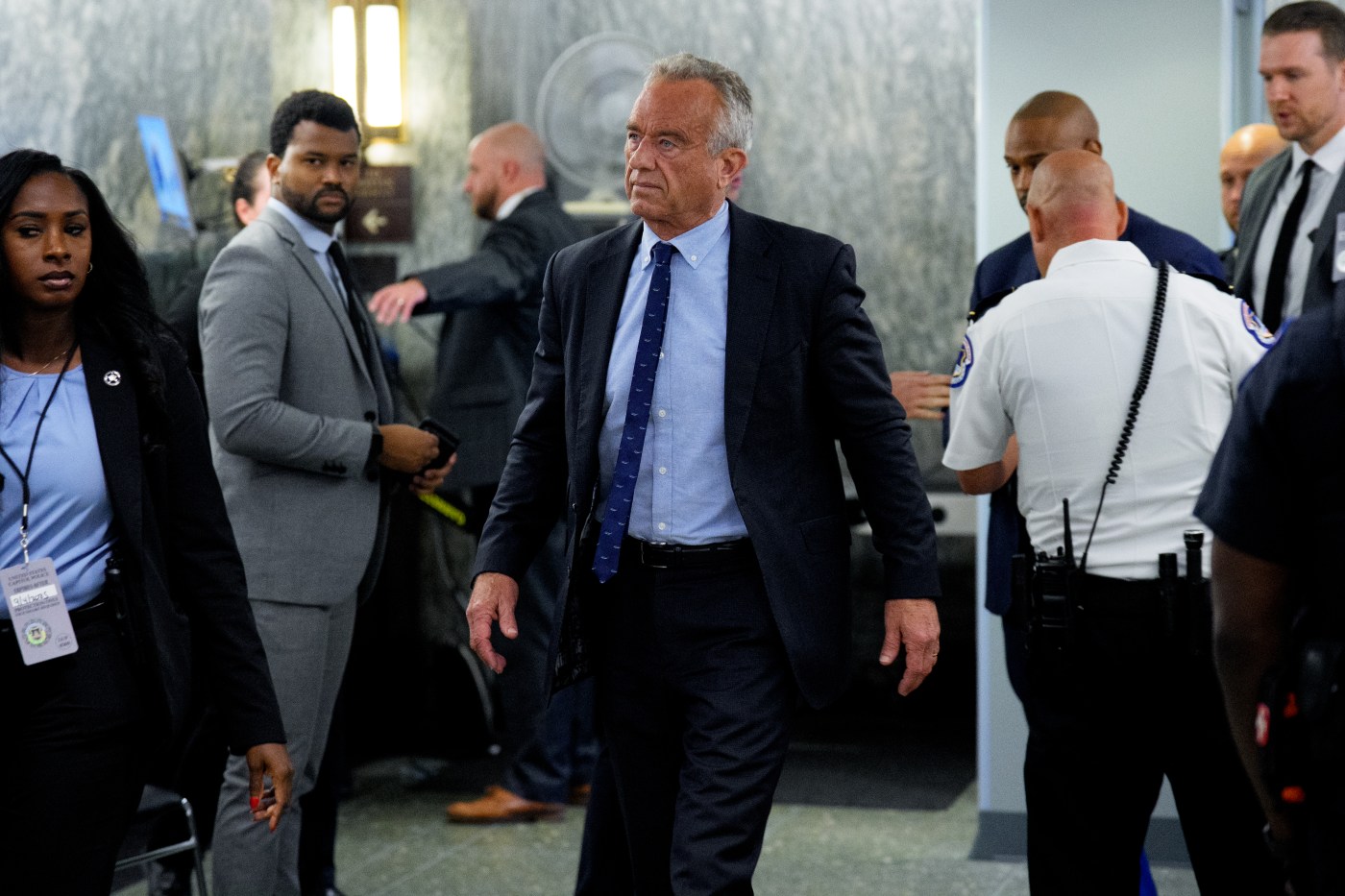


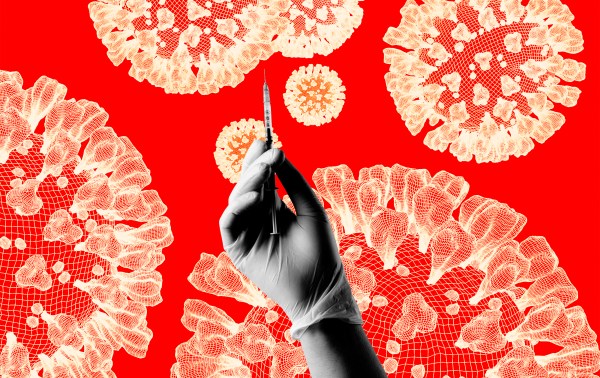
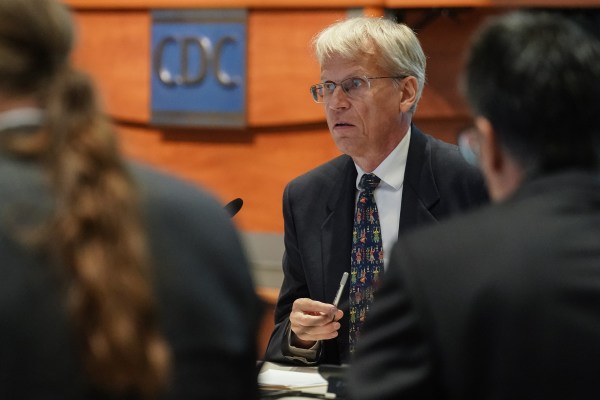
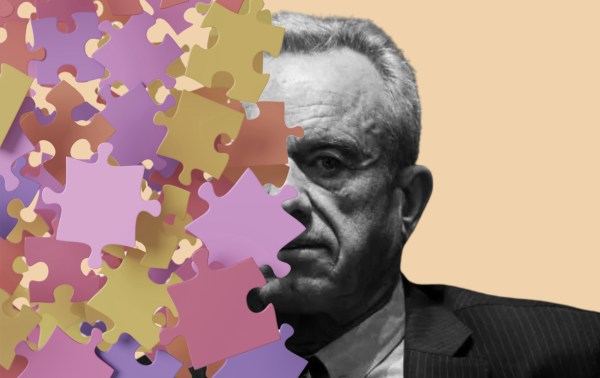
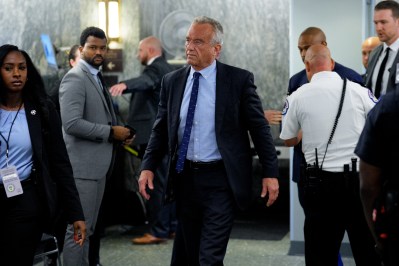
Please note that we at The Dispatch hold ourselves, our work, and our commenters to a higher standard than other places on the internet. We welcome comments that foster genuine debate or discussion—including comments critical of us or our work—but responses that include ad hominem attacks on fellow Dispatch members or are intended to stoke fear and anger may be moderated.
With your membership, you only have the ability to comment on The Morning Dispatch articles. Consider upgrading to join the conversation everywhere.